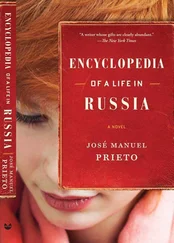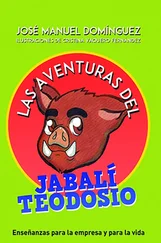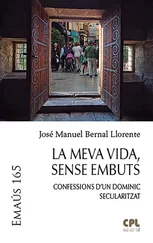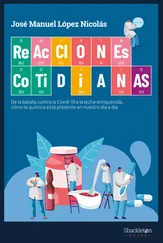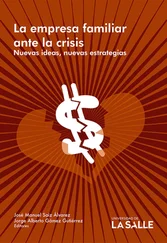3
I perceived with clarity that a wave of indignation (these were lies! lies!) was welling up in me and moving forward out of the years when I was younger and more upright, only to lose its momentum in the subaqueous crags of my soul, without my managing to say what I was thinking, reveal my perspective, without my lips articulating a single word. Beneath the thick layer of oil which, in those adventure novels the Writer tells us he read as a boy, they poured out by the barrel to calm the angry sea and send out a boat, a whaler. Floating beneath that dense film of oil, the iron grip of its tiny molecular hands, watching them argue, the veins of the neck swelling, rocking to the rhythm of the waves, the tranquil viscosity of a jellyfish many kilometers long, swaying and dancing smoothly on the surface.
Thinking.
A danger to turn all the work in that direction, in terms of physics: to endow it with a mass that was difficult to steer when set against the infinite and far less tangible effect of an imposture. An intelligent man, Vasily, very intelligent! But far too attached to the high flame of bunsen burners, to alloys of iron and tungsten — which could not easily be replaced by the sale of small portions of colored air, easily transported in carry-on luggage, shaped at will.
Thinking.
It will be science, nevertheless, that places a new monarch on any throne from now on, whether in Russia or in Portugal. No one will have any objection to a scientifically distilled monarch, whose capacity for command we understand with scientific precision. A certain interior disposition that obliges a king to raise the napkin to his lips in a certain august manner, to sweep the room with august eyes. Without anyone having a second’s doubt about his capacity to reign. Not politicians — you know — party leaders, gobblers of greasy doughnuts, swillers of beer. Something in the last gene of the sequence that would move him to lift his arm in an unrepeatable gesture, a penetrating vision that would enable him to throw his gaze across the mass of problems and find, always, like the knife the Writer (Chuang Tse) speaks of, the most recondite interstices, without ever blunting the blade, the sharp edge. Simple, clear solutions where everyone else sees only the murkiest obscurity. Moving forward with grace, deactivating them, one by one. The ascendance and power of the one who knows.
And since his other talents would be known as well — that of growing diamonds, for example, gem-quality stones — there could be no doubt as to his capacity to rule. Like the man who, in Byzantium, from the depths of an encamped army, strode out onto a hillock and crossed the camp beneath a beam of light that shone on him from the zenith (and that light later passed into legend), to take command, to strip control from the Basileus, who was weeping and shivering. And no one — for they’d been raised to know that not all men are created equal, that there are superior men — no one ever doubted that he was the one.
With absolute certainty, inspired science. At one glance. Walking down a hill beneath that light, the last hill before the tent with the imperial flag, and then entering that tent to grasp the reigns of Empire, like Michael the Stammerer or Phocas the Usurper: men rough in aspect as they rode roughly across Asia Minor but who awoke one day suddenly knowing themselves to be kings.
And now: that certainty clarified by science. Because, I repeat, there would be or would exist some such genetic tendency or predisposition, blockages in their brains that would finally rearrange themselves one day, like an equation whose solution takes years to become clear, and then appears to them, lights up blinking in their minds, and they leap to their feet and stride outside to meet the army, the Empire, that awaits them.
Not the arbitrary process of the Tibetans who seek traits or certain signs of the Dalai Lama in the round faces of many babies. Until they find one on which they can stamp, by common consent, the mental image of a king. Though that works. They’ve been doing it for centuries, and it’s never failed!
A boy, a pure soul, a tabula rasa, who ends up reigning over them and they yield to his government with gratitude and wisdom. Without any sort of certainty or scientific evidence playing a role in the process, only such inexact techniques as smelling the breath, inspecting the urine, scrutinizing an iris. And without their ever being mistaken, neither with Lama two nor with Lama five, the favorites of Lhamo Thondup, the current Lama. Differing among themselves, each one capable of making his own mark.
Think now, linger a moment over a dynastic selection in which the electorate consists primarily of the scrawny-shouldered (in a manner of speaking — your papa is not scrawny of shoulder), and this selection, in the depths of the laboratory, delivers an unobjectionable result: the finest one. Not a group of the best and the brightest — the finest one of all!
4
Or as if a young dramaturge who once hailed from Stratford-upon-Avon were to appear miraculously right now and place three tragedies on the table during the meeting of a theater company in England or anywhere else. If only the people in the meeting knew how to read it, the professors, the trustees, should it happen that they were able to read it as I do, with the simplicity, the appreciation or perception of its entirety, the certainty that comes of being in the presence of a masterwork, as when (I remember it perfectly), at the age of nineteen (so early an age), on the semicircular front stairway of my school, I opened the Book and set my eyes on the first sentence of that volume ( Swann in Love ) and knew immediately that this was the Book, and that its author — a unique writer — was the Writer. That day. Like someone who finds the solution to a math problem.
Suddenly acquiring, over the course of just a few pages, the certainty that assaults you definitively as an adult, that now we’ll never love anyone else. At least not with a love like that. That we won’t fall in love again with the force and the intensity (and the abandon? and the abandon) with which we fell in love that one time, years ago. Never again. And without having lived much at all at that point, only seven years older than you are now, Petya, I perceived that truth. And yes, I have fallen in love, I have had loves, I have admired other writers and allowed them to enter my eyes and my soul. I’ve lived inside them, studied some of them, but have always gone back to the Writer, in the end. In the same way, if the trustees were to see two plays, two tragedies, three comedies, appear on the table next to their cups of steaming coffee, they wouldn’t be able to go on drinking their terrible coffee, they would sit stock still, as if struck by lightning. The government ministers, the doughnut-gobbling presidents, the owners of country estates, the false connoisseurs of Russian literature, the ridiculous opera-lovers, they would all stop in their tracks if their black souls permitted, to prostrate themselves before a king as the thing most healthy and natural to their hearts, acknowledging and proclaiming that not all men are created equal, that some are superior. And yet they are hardened, bad; they pretend to be equal. Equal to whom? To Shakespeare? To the Writer?
5
You had conceded, after a certain time, and without thinking it necessary to tell me in so many words, the reality of the story I’m telling you. Understanding that however fantastic it might appear, having heard me out to that point, it was entirely factual: names like Kirpich and Raketa existed, as well as the two scientists, old friends, who had imagined the most harebrained scheme, given proof of the most insane imagination, forced the limits of the credible, carried the plausible to an extreme. And you assimilated that, as well, you let the pages with fistfuls of diamonds pass, in Ophir, the Solomonic kingdom of Ophir, millions in stones, bezants, and florins flowing between your fingers into the gilded mouths of coffers. Luxury and wealth, Petya, to that degree. You’d heard me out, followed and believed up to this point, hadn’t you?
Читать дальше

